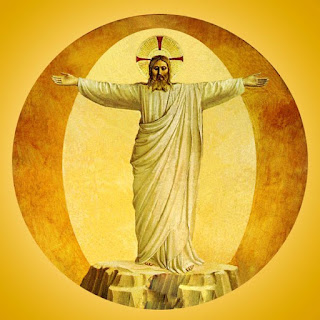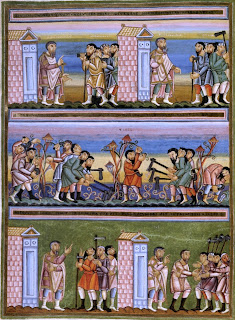1st Passiontide
March 19, 2017
Luke 11: 29-35
 |
| Queen of Sheba, Metropolitan Museum |
And as the crowds increased, Jesus began to speak. “The men of this generation are strangers to their true being. They look for signs and outer proofs of the spirit, but none other will be given to them but the sign of Jonah. For just as once Jonah shared the experience of the spirit with the inhabitants of Nineveh, so will the Son of Man share the experience of the spirit with this present generation. The Queen of the South will rise in the time of great crisis and decision against the men of this present generation and judge them, for she came from the ends of the earth to hear the wisdom of Solomon. But know this: here is more than Solomon.
The inhabitants of Nineveh will rise up in the days of crisis and decision against the men of this present generation and will pronounce judgment over them. For they changed their ways after the proclamation of Jonah. But know this; here is more than Jonah.
 No one lights a light and then puts it in a hidden place or under a vessel, but rather sets it on a lamp stand, so that all may see the light shining.
No one lights a light and then puts it in a hidden place or under a vessel, but rather sets it on a lamp stand, so that all may see the light shining.
The light of your body is your eye. When your eye looks at the world clearly and impartially, the processes of your whole body will be inwardly filled with light. If, however, the eye’s desire sees the world separated from the spirit, darkness will pour itself into you.
Protect yourself that the light does not become darkness in you.
If your body is now filled with light, so that it no longer takes part in darkness, everything will be completely illuminated, so that, with lightning brightness, the light irradiates you completely from within.
First Passiontide
March 19, 2017
Luke 11: 29-35
In growing darkness, our perceptions change. As light fades, shadowy figures may emerge. In darkness fears arise and we can become disoriented. We may bump into things and ourselves grow dark with anger.
Our perception of the state of the world has changed. Shadowy figures abound. We may be afraid for the future and not know how to orient ourselves.
 |
| Bernhard Eyb |
And we are to protect our relationship to this light, take it into ourselves. Then this light will shine forth from us out into the world, as trust in the greater powers of the good, as hope, and as love.
. . . remember:
when a man of war becomes a man of peace,
he gives a light, divine
though it is also human.
When a man of peace is killed
by a man of war, he gives a light.
You do not have to walk in darkness.
If you will have the courage for love,
you may walk in light.
It will be
the light of those who have suffered
for peace. It will
be
your light.*
Wendell Berry, "To my granddaughters who visited the
Holocaust Museum on the day of the burial of Yitzhak Rabin", in A Timbered Choir





















